September 20 stands as one of history’s most eventful days, witnessing the rise and fall of empires, groundbreaking discoveries, and moments that shaped our modern world across centuries of human achievement.
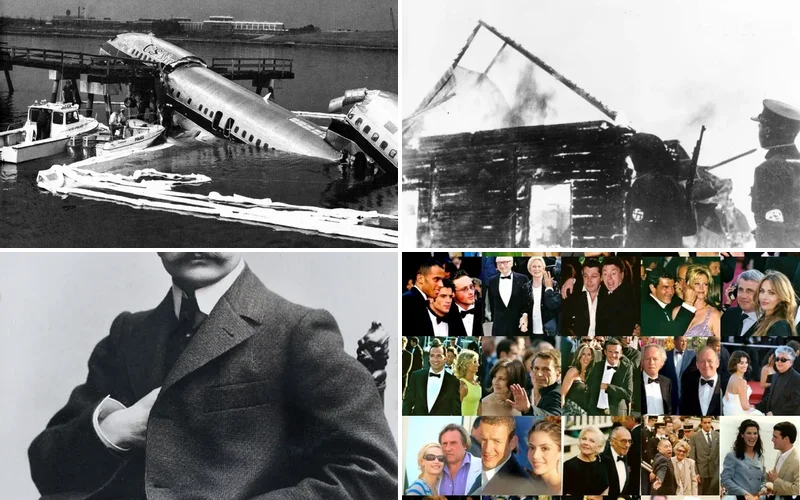
Politics and Government Events on September 20
1946 – King Christian X Annuls Faroe Islands Independence
Danish King Christian X decisively overruled the Faroe Islands’ declaration of independence just six days after a referendum. The monarch’s intervention demonstrated the continuing power of royal authority in post-war Europe.
The decision reflected Denmark’s determination to maintain territorial integrity following World War II. This political crisis established precedents for handling autonomy movements within the Danish realm.
1961 – Konstantinos Dovas Becomes Greek Prime Minister

Greek general Konstantinos Dovas assumed the prime ministership during a period of intense political instability. His military background provided stability during Greece’s post-war reconstruction efforts.
The appointment represented the continuing influence of military leaders in Greek politics. Dovas faced significant challenges rebuilding the nation’s democratic institutions and economic infrastructure.
1977 – Vietnam Joins the United Nations
The Socialist Republic of Vietnam gained full membership in the United Nations, marking its complete integration into the international community. This milestone occurred two years after the end of the Vietnam War.
The admission symbolized Vietnam’s transformation from a war-torn battlefield to a sovereign nation seeking diplomatic recognition. The event marked a new chapter in Southeast Asian geopolitics.
1990 – South Ossetia Declares Independence from Georgia
The breakaway region of South Ossetia proclaimed its independence from the Georgian Soviet Socialist Republic. This declaration triggered decades of territorial disputes and intermittent warfare.
The separatist movement reflected broader ethnic tensions within the dissolving Soviet Union. International recognition remained limited, creating a frozen conflict that persists today.
2001 – President Bush Declares War on Terror
President George W. Bush addressed a joint session of Congress to formally declare America’s “War on Terror” following the September 11 attacks. The speech fundamentally altered American foreign policy for the next two decades.
Bush’s declaration launched military operations across multiple continents and reshaped global security priorities. The announcement committed the United States to an unprecedented campaign against international terrorism.
Military and Naval History on September 20
1911 – RMS Olympic Collides with HMS Hawke
The White Star Line’s massive passenger liner RMS Olympic collided with the British warship HMS Hawke in a dramatic maritime accident. The incident raised serious questions about naval safety protocols in increasingly busy shipping lanes.
Both vessels sustained significant damage, though fortunately no lives were lost. The collision highlighted the growing challenges of coordinating civilian and military maritime traffic in the early twentieth century.
1920 – Black and Tans Burn Balbriggan
British paramilitary forces known as the “Black and Tans” burned the Irish town of Balbriggan in retaliation for an IRA assassination. The brutal reprisal killed two local civilians and destroyed numerous buildings.
The attack exemplified the escalating violence during the Irish War of Independence. British tactics increasingly alienated Irish public opinion and strengthened support for republican forces.
1965 – Indian Army Captures Dograi
Following their victory at the Battle of Burki, Indian forces successfully captured the strategic town of Dograi during the Indo-Pakistani War. The operation demonstrated superior Indian tactical coordination and battlefield leadership.
The capture of Dograi strengthened India’s negotiating position in eventual peace talks. Pakistani forces retreated under heavy pressure, marking a significant tactical victory for Indian military commanders.
1984 – Beirut Embassy Bombing

A suicide bomber detonated a car bomb outside the U.S. embassy in Beirut, killing twenty-two people and injuring dozens more. The attack highlighted the vulnerability of American diplomatic facilities in the volatile Middle East.
The bombing occurred during Lebanon’s devastating civil war, when sectarian violence consumed the country. Security measures at American embassies worldwide were dramatically increased following this tragic incident.
Science and Discovery Milestones on September 20
1971 – Hurricane Crosses Between Oceans
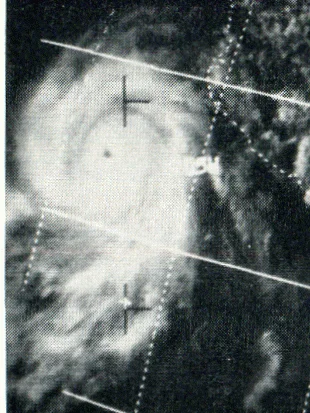
Hurricane Irene made meteorological history by crossing from the Atlantic to the Pacific Ocean, becoming Hurricane Olivia. This unprecedented weather event marked the first documented hurricane to traverse between ocean basins.
The storm’s unusual path provided valuable data for climate scientists studying hurricane behavior. Meteorologists gained new insights into atmospheric dynamics and cross-continental weather patterns.
1989 – USAir Flight 5050 Crashes

USAir Flight 5050 crashed into Bowery Bay during a rejected takeoff from LaGuardia Airport, killing two passengers. The accident prompted extensive investigations into takeoff safety procedures at major airports.
Aviation authorities implemented new protocols for rejected takeoffs following the crash investigation. The incident demonstrated the critical importance of proper aircraft weight distribution and runway safety measures.
2019 – Global Climate Strike
Approximately four million people, predominantly students, participated in worldwide climate demonstrations led by Greta Thunberg. The massive coordinated protest represented the largest climate action in history.
The global strike demonstrated unprecedented youth activism on environmental issues. Thunberg’s leadership from New York City inspired simultaneous demonstrations across six continents.
Cultural and Arts Events on September 20
1946 – First Cannes Film Festival Opens

The inaugural Cannes Film Festival finally opened after a seven-year delay caused by World War II. The prestigious event established itself as the world’s premier showcase for international cinema.
Festival organizers presented films from twenty-one countries, celebrating the revival of European cultural life. The event launched Cannes as the ultimate destination for filmmakers, critics, and cinema enthusiasts worldwide.
1954 – Moomin Comics Launch Internationally
Tove Jansson and Lars Jansson’s beloved Moomin comic strip began international syndication through London’s Evening News. The Finnish creation introduced global audiences to the whimsical world of Moominvalley.
The comic strip’s international success established the Moomins as cultural ambassadors for Finnish literature and art. Children worldwide embraced the gentle philosophy and imaginative storytelling of these beloved characters.
1973 – Jim Croce Dies in Plane Crash

Singer-songwriter Jim Croce, musician Maury Muehleisen, and four others perished when their aircraft crashed after takeoff from Natchitoches Regional Airport. The tragedy cut short one of America’s most promising musical careers.
Croce’s death shocked the music world at the height of his popularity. His storytelling songs like “Bad, Bad Leroy Brown” and “Time in a Bottle” became posthumous classics.
Religious and Social Events on September 20
1941 – Holocaust Massacre in Lithuania
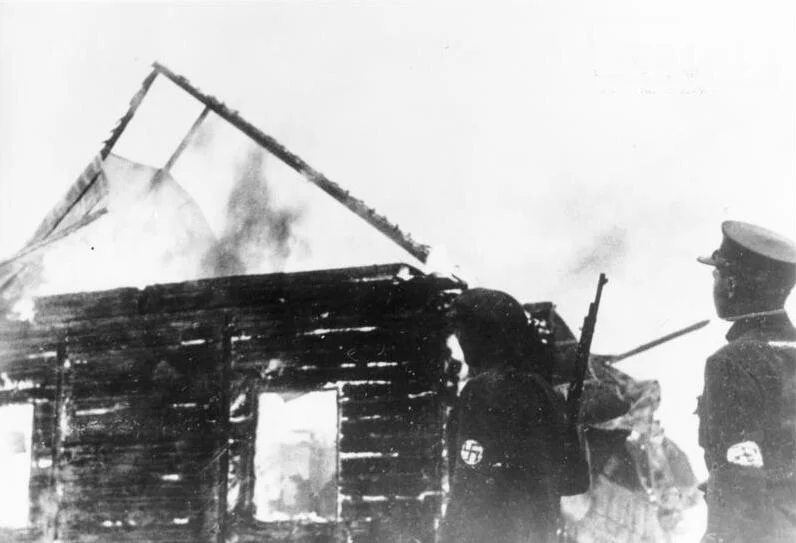
Lithuanian Nazi collaborators and local police began systematically executing 403 Jewish residents of Nemenčinė. The massacre represented one of countless atrocities during the Holocaust in Eastern Europe.
Local participation in the killings demonstrated the tragic extent of anti-Semitic collaboration. The murders occurred as part of the broader Nazi campaign to eliminate Jewish communities throughout occupied territories.
1962 – James Meredith Barred from University

African American student James Meredith was temporarily prevented from enrolling at the University of Mississippi despite federal court orders. The confrontation became a defining moment in the American civil rights movement.
State officials defied federal integration mandates, precipitating a constitutional crisis. The incident required federal intervention to ensure Meredith’s enrollment and uphold desegregation laws.
2007 – Jena Six Protest March
Between 15,000 and 20,000 protesters marched in Jena, Louisiana, supporting six black students convicted of assaulting a white classmate. The demonstration highlighted ongoing racial tensions in the American South.
The protest drew national attention to perceived injustices in the criminal justice system. Civil rights organizations mobilized unprecedented support for the students’ cause.
2005 – Simon Wiesenthal Dies

Holocaust survivor and Nazi hunter Simon Wiesenthal passed away, ending his decades-long crusade for justice. His relentless pursuit of war criminals brought numerous Nazi perpetrators to trial.
Wiesenthal’s work ensured that Holocaust crimes would not be forgotten or unpunished. His documentation efforts preserved crucial evidence for historical memory and legal proceedings.
Business and Economic Events on September 20
1955 – USSR-East Germany Treaty
The Soviet Union and German Democratic Republic signed the Treaty on Relations, formally establishing East Germany’s sovereignty while maintaining Soviet influence. The agreement reshaped Cold War power dynamics in Central Europe.
The treaty granted East Germany nominal independence while ensuring continued Soviet political and economic control. This arrangement became a model for other Warsaw Pact relationships.
1982 – NFL Players Strike Begins
National Football League players initiated a 57-day strike over salary and benefit disputes. The work stoppage disrupted the entire football season and transformed professional sports labor relations.
The strike demonstrated the growing power of professional athletes’ unions. Players successfully negotiated improved working conditions and compensation structures that influenced other sports leagues.
2008 – Islamabad Hotel Bombing
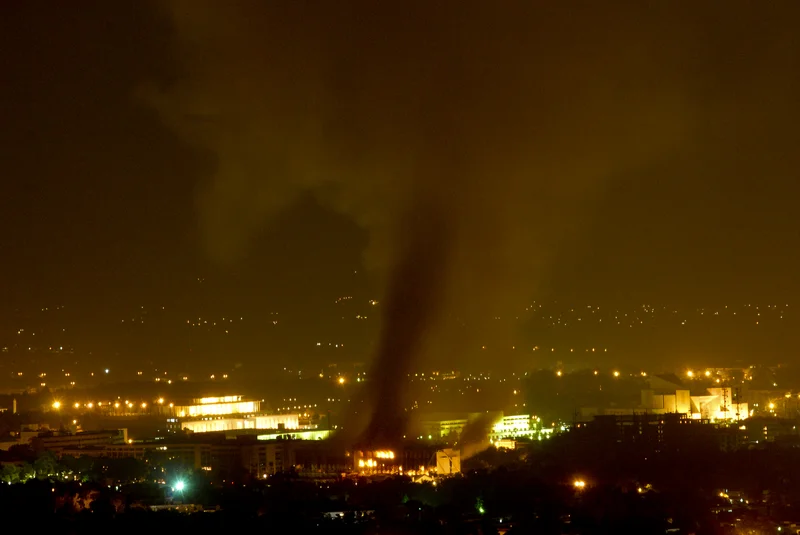
A truck bomb exploded outside the Marriott Hotel in Islamabad, Pakistan, killing 54 people and injuring 266 others. The attack devastated Pakistan’s hospitality industry and international business confidence.
The bombing targeted foreign diplomats and business leaders, severely impacting Pakistan’s economy. Security measures at international hotels worldwide were dramatically strengthened following this tragedy.
Transportation and Infrastructure on September 20
1967 – Queen Elizabeth 2 Launched
The Cunard Line’s magnificent Queen Elizabeth 2 was launched in Clydebank, Scotland, marking a new era in luxury ocean travel. The vessel represented the pinnacle of British maritime engineering and design.
The QE2 became the world’s most famous cruise ship, serving passengers for nearly four decades. Her launch revitalized the transatlantic passenger trade and established new standards for ocean liner luxury.
2000 – MI6 Building Attacked
Unknown assailants fired a Russian-built RPG-22 anti-tank missile at the United Kingdom’s Secret Intelligence Service headquarters in London. The unprecedented attack caused minor damage but shocked British security services.
The brazen assault on Britain’s premier intelligence facility prompted massive security reviews. Authorities never identified the attackers, making this one of London’s most mysterious terrorist incidents.
2017 – Hurricane Maria Devastates Puerto Rico

Hurricane Maria struck Puerto Rico as a Category 4 storm, causing 2,975 deaths and $90 billion in damage. The disaster created the worst humanitarian crisis in the territory’s modern history.
The hurricane destroyed Puerto Rico’s electrical grid and water systems, leaving millions without basic services. Recovery efforts continued for years, highlighting infrastructure vulnerabilities in American territories.
Sports and Recreation on September 20
1973 – Battle of the Sexes Tennis Match
Billie Jean King defeated Bobby Riggs in the famous “Battle of the Sexes” tennis match at the Houston Astrodome. The victory became a landmark moment for women’s sports and gender equality.
King’s straight-sets victory demolished Riggs’ claims about female athletic inferiority. The match attracted massive television audiences and advanced the cause of women’s professional tennis.
1982 – NFL Strike Impacts Season
Professional football players launched a 57-day strike that disrupted the entire NFL season. The labor dispute transformed professional sports economics and player-management relations.
The strike demonstrated athletes’ growing awareness of their economic value. Players successfully negotiated improved working conditions that influenced labor relations across professional sports.
2011 – Military Ends Don’t Ask, Don’t Tell
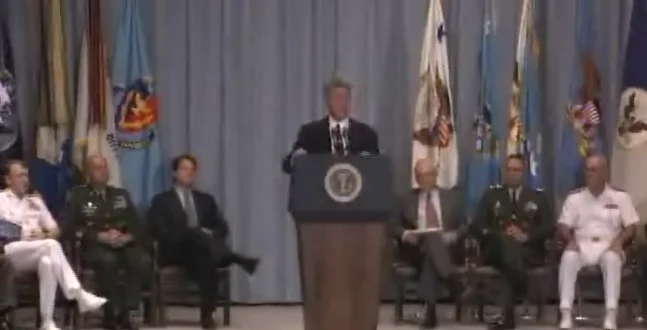
The United States military officially ended its “Don’t Ask, Don’t Tell” policy, allowing gay and lesbian service members to serve openly. The historic change marked a major victory for LGBTQ+ rights.
Military leadership successfully implemented the policy change without operational disruption. The transition demonstrated the armed forces’ ability to adapt to evolving social values.
Notable Births on September 20
1934 – Sophia Loren Born

Italian actress Sophia Loren was born in Rome, destined to become one of cinema’s greatest international stars. Her early years in poverty shaped her determination to succeed in entertainment.
Loren’s natural beauty and acting talent would soon captivate audiences worldwide. She became the first actor to win an Academy Award for a foreign-language performance.
1948 – George R.R. Martin Born

American novelist George R.R. Martin was born in Bayonne, New Jersey, beginning a life dedicated to fantasy literature. His childhood love of reading sparked his imagination for epic storytelling.
Martin’s intricate world-building and complex characters would revolutionize fantasy literature. His “A Song of Ice and Fire” series became the basis for the television phenomenon “Game of Thrones.”
1951 – Guy Lafleur Born

Canadian ice hockey legend Guy Lafleur was born in Thurso, Quebec, launching one of the sport’s most celebrated careers. His natural skating ability and scoring instincts emerged during childhood.
Lafleur became the Montreal Canadiens’ greatest modern player, leading them to five Stanley Cup championships. His graceful style and clutch performances made him a hockey icon.
1968 – Norah Vincent Born
American writer Norah Vincent was born in Detroit, Michigan, beginning a career that would explore gender identity and social criticism. Her intellectual curiosity developed early through voracious reading.
Vincent’s groundbreaking book “Self-Made Man” examined masculinity through immersive journalism. Her work challenged conventional assumptions about gender roles and social expectations.
1973 – Jo Pavey Born

English distance runner Jo Pavey was born in Honiton, Devon, beginning a career that would span five Olympic Games. Her dedication to training started in childhood athletics programs.
Pavey became Britain’s most successful female distance runner, competing at the highest level into her forties. Her longevity and consistency inspired countless recreational runners.
Notable Deaths on September 20
1957 – Jean Sibelius Dies
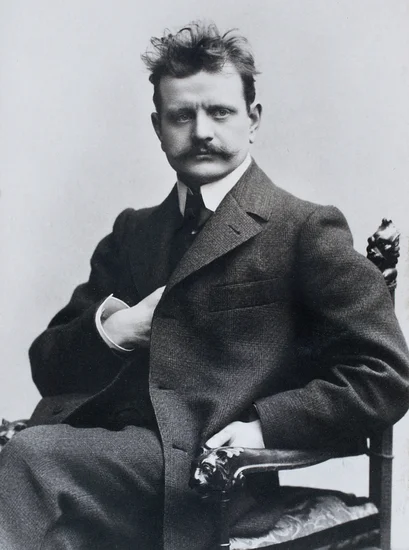
Finnish composer Jean Sibelius passed away, ending a career that defined Nordic classical music. His symphonies captured the essence of Finnish national identity and natural beauty.
Sibelius’s compositions bridged Romantic and modern musical traditions. His “Finlandia” became an unofficial national anthem, symbolizing Finnish independence and cultural pride.
1971 – Giorgos Seferis Dies
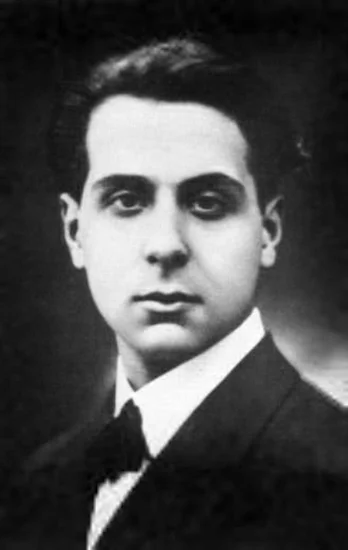
Greek poet and diplomat Giorgos Seferis died, concluding a distinguished career in literature and international service. His poetry explored themes of exile, memory, and Mediterranean identity.
Seferis received the Nobel Prize in Literature for his profound poetic contributions. His diplomatic work helped establish Greece’s post-war international relationships.
1973 – Jim Croce Dies

American singer-songwriter Jim Croce perished in a plane crash at the height of his musical career. His storytelling songs had recently achieved massive commercial success and critical acclaim.
Croce’s narrative style and melodic sensibility influenced generations of singer-songwriters. His posthumous releases continued to demonstrate his exceptional songwriting talent.
1996 – Paul Erdős Dies
Hungarian mathematician Paul Erdős passed away, ending one of the most prolific mathematical careers in history. His collaborative approach revolutionized mathematical research and publication.
Erdős published over 1,500 mathematical papers, more than any mathematician in history. His work spanned multiple fields, from number theory to combinatorics and graph theory.
2000 – Gherman Titov Dies
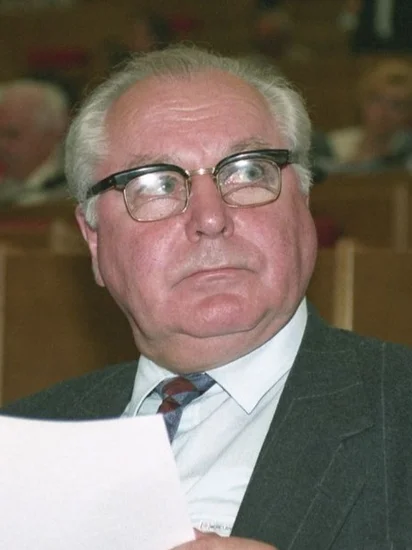
Soviet cosmonaut Gherman Titov died, concluding a life dedicated to space exploration and aviation. He became the second human to orbit Earth and the youngest person to fly in space.
Titov’s historic flight provided crucial data for future space missions. His technical expertise contributed to the Soviet Union’s early dominance in space exploration.
Holidays and Observances on September 20
Constitution Day in Nepal
Nepal observes Constitution Day on September 20, commemorating the adoption of its current constitution. The holiday celebrates the country’s democratic achievements and constitutional governance.
Citizens participate in civic ceremonies and educational programs about democratic principles. The observance reinforces Nepal’s commitment to constitutional democracy and rule of law.
National Youth Day in Thailand
Thailand celebrates National Youth Day on September 20, honoring the contributions and potential of young citizens. The holiday emphasizes youth development and civic engagement.
Educational institutions organize special programs highlighting youth achievements and leadership opportunities. The observance encourages young people to participate actively in national development.
Oil Workers’ Day in Azerbaijan
Azerbaijan recognizes Oil Workers’ Day on September 20, celebrating the petroleum industry’s economic importance. The holiday honors workers who drive the nation’s energy sector.
The observance acknowledges oil workers’ technical expertise and economic contributions. Azerbaijan’s petroleum industry remains central to the country’s economic development and international relations.
Universal Children’s Day in Germany
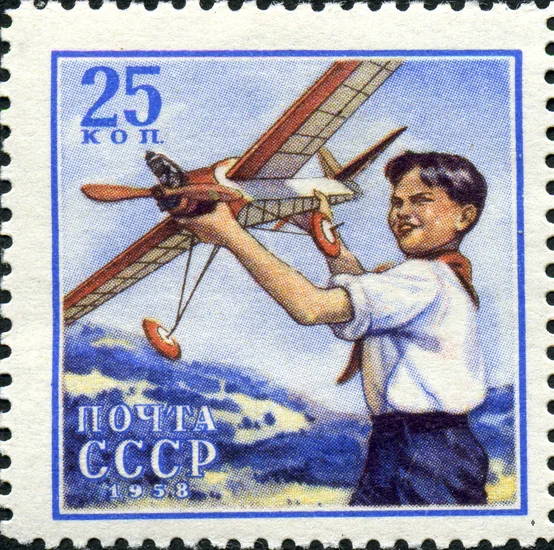
Germany observes Universal Children’s Day on September 20, promoting children’s rights and welfare. The holiday emphasizes protecting children and ensuring their healthy development.
Schools and community organizations host special events celebrating childhood and family values. The observance raises awareness about children’s needs and rights in German society.
